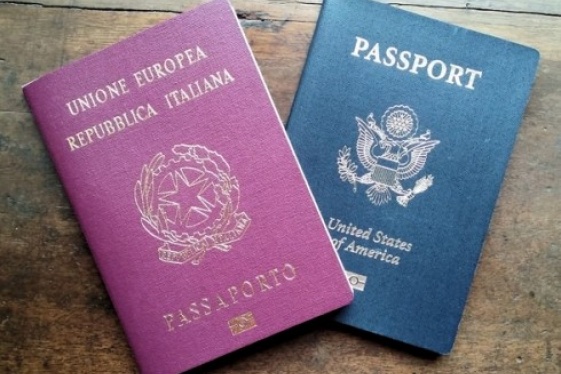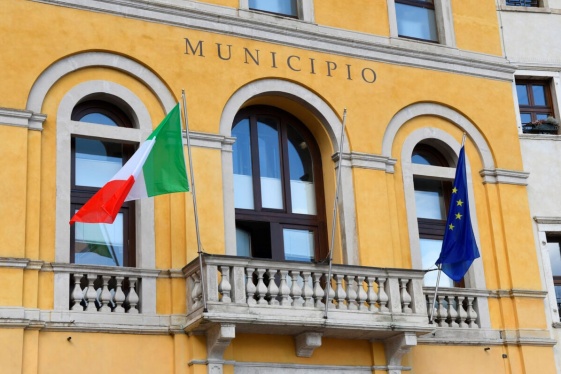

Did you know that local courts in Italy have been granted the authority to process applications for Italian citizenship by descent? In other words, citizenship cases which include a female ancestor who gave birth to her child prior to January 1, 1948 will no longer be decided by the Civil Court of Rome only.
In fact, on December 24, 2021 the Italian government approved a law (no.206/2021), which became effective on June 22, 2022, and whose provisions allow other courts in Italy the ability to hear 1948 cases. In particular, the law establishes that “if the petitioner resides abroad the lawsuit must be filed at the court that covers the jurisdiction of the Italian father, mother or ancestor’s municipality”. So what is a 1948 case? What are the reasons behind this law and what are the potential implications?
What is a 1948 case?
Prior to January 1, 1948, men and women did not have equal civil rights. This also applied to citizenship law; in other words, women were not able to pass their citizenship on to their children. This changed when the Italian constitution came into effect on January 1, 1948 as it granted men and women equal rights and therefore, women were able to pass their citizenship on to their children. Women’s unfair treatment is now considered to be unlawful and discriminatory, and this is why it is possible to file a lawsuit and apply for Italian citizenship retroactively.
If you would like to learn more about 1948 cases and all the scenarios which fall under this category please click here.
Which documents do you need in order to file a lawsuit?
As with applying for Italian citizenship via an Italian consulate or municipality in Italy, you will need to retrieve certified copies of your family’s vital records and prove that you have an unbroken line of Italian ascendants, and that the ancestor through whom you are claiming citizenship was never naturalized or was naturalized after his or her child’s birth. The vital records needed to apply comprise birth, marriage, divorce and death certificates, and the naturalization records pertaining to the ancestor who was born in Italy, or proof that your ancestor was never naturalized. In particular, if the female ancestor through whom you are claiming citizenship was never naturalized, you will need to retrieve a Certificate of Non-Existence of Records from USCIS (U.S. Citizenship and Immigration Services) and a Letter of Negative Search from NARA (the National Archives and Records Administration) or from the counties which cover the jurisdictions where your ancestor resided. All the documents will need to be legalized with an Apostille and they will also need to be translated into Italian. Please note that all of the translations need to certified prior to being submitted to the court.
Your application is ready: what now?
In order to file your application, you will need to grant a lawyer a Power of Attorney in order for him/her to file the lawsuit on your behalf and represent you in court. Therefore, you do not need to travel to Italy to attend the hearing. The lawyer will then assemble all of your documents and prepare the arguments to defend your case.
Where will the lawsuit be filed?
As previously mentioned, until June 22, 2022, all lawsuits were filed at the Court of Rome (“Tribunale Civile di Roma”). As a matter of fact, the precedent to claim Italian citizenship retroactively was set in 2009 when the Court of Rome stipulated that the principle of gender equality outlined in the Italian constitution should be applied retroactively. Therefore, the Court affirmed that female ancestors could pass their citizenship on to their children provided that they did not voluntarily naturalize before their child’s birth.
As of June 22, 2022 it is necessary to file 1948 cases in the courts in the regional county seats that cover the jurisdiction of the applicant’s Italian ancestor’s municipality of birth.
What are the reasons behind the reform?
Arguably, one of the reasons behind the new law is to improve the efficiency of Italy’s judicial system by lightening the workload of the Court of Rome where all 1948 cases have been filed to present. In other words, the aim is to reduce overall processing times for lawsuits which, in turn, should result in quicker hearing listings. Nevertheless, as the courts in the regional county seats in Italy have different processing times and jurisprudences, it is hard to determine the actual processing time for each application as this will also be dependent on the applicant’s specific citizenship case.
Are there any potential implications on the success rates of a lawsuit?
It is fair to argue that the success rate of a 1948 case will most likely remain unvaried; this is due to the fact that courts in Italy tend to grant citizenship in any lawsuit filed after the precedent was established in 2009 in the Court of Rome. Nevertheless, as previously stated, every case is unique, and each court in Italy has the power to determine whether an applicant meets the requirements to apply for dual citizenship.
What happens after a lawsuit has been filed?
Once a lawsuit has been filed, a judge will be assigned to your case and he/she will schedule the first hearing. The waiting time varies depending on the judge’s availability, but it is generally between three and nine months. During the first hearing the judge will examine your vital records and check that all the documents are in the correct format. If your application is complete the judge will decide whether to grant or deny your claim to citizenship on the same day the hearing is held, or within a few weeks from that day.
If the case is won, you will need to wait 60 days for the judge’s decision to become final. When that period of time has elapsed the attorney representing you will receive the final judgment, which will then need to be registered at the Italian municipality where your ancestor was born together with your vital records (birth and marriage certificates). Once the municipality has registered these documents you will be registered with the A.I.R.E. (Registry of Italian Citizens Residing Abroad) and you will be able to apply for a passport at the Italian consulate that covers the jurisdiction where you reside. Click here for more information about the steps you should take when you citizenship application is approved.
In conclusion, if you are interested in filing a lawsuit to obtain Italian citizenship by descent retroactively, and you would like learn more about the topic, do not hesitate to contact us at [email protected]. We will be happy to help you.
You may be interested
-
After 50 Years, Sayreville Icon Camillo Ianac...
Camillo Ianacone, owner of Camillo's Restaurant (31 MacArthur Ave., Sayreville), officiall...
-
Announcing: Italian Citizenship Service
The Italy-America Chamber of Commerce is pleased to announce the launch of a new Italian C...
-
ICA: 1948 cases. Italian citizenship through...
In last month’s Italian Citizenship Assistance article, we covered Italian citizenship by...
-
ICA: 5 Ways to acquire Italian Citizenship
Welcome again to our Italian Citizenship Assistance column! In our previous article, we di...
-
ICA: A podcast to help you with getting Itali...
Due to the large number of people who are unable to find information about Italian citizen...
-
ICA: Applying for Italian citizenship as a fa...
If you meet the eligibility requirements to apply for Italian citizenship by descent you m...
-
ICA: Applying for Italian citizenship in Ital...
In many of our articles published last year we provided extensive information on the eligi...
-
ICA: Applying for Italian citizenship outside...
Most of our articles have analyzed the eligibility requirements to apply for Italian citiz...










